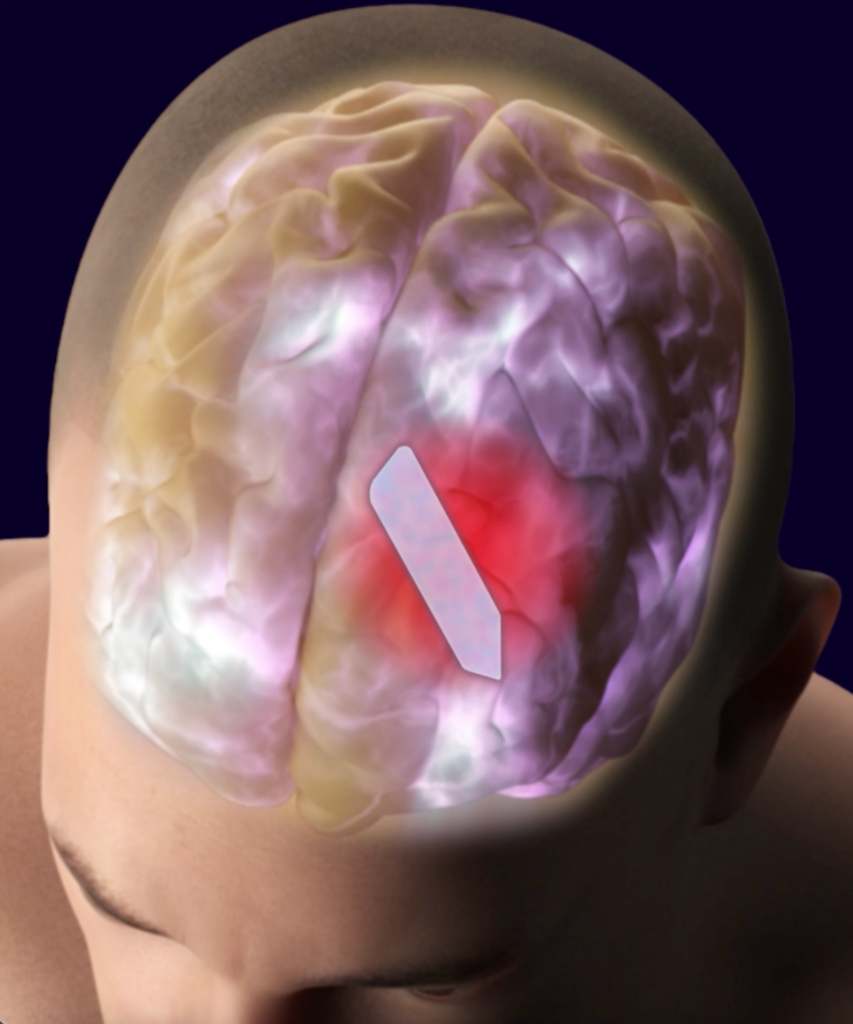Nanomaterial-Based Neural Implants Combining Stem Cell Delivery with Electrical Stimulation for the Treatment of Stroke
Speaker: Dr. Michael Spaid, Founder and CEO, ConductiveBio Inc.
In-Person Meeting. Register: Here
Date and Time
Thurs Feb. 22
11:30am: Networking & Pizza
Noon-1PM: Seminar
Cost: $4 to $6
Location
EAG Laboratories – 810 Kifer Road, Sunnyvale
==> Use corner entrance: Kifer Road / San Lucar Court
==> Do not enter at main entrance on Kifer Road
Nanomaterial-Based Neural Implants Combining Stem Cell Delivery with Electrical Stimulation for the Treatment of Stroke

ConductiveBio is developing advanced therapeutics for the treatment of stroke, the leading cause of death and disability worldwide. Currently, medical interventions for stroke are limited to within the first 24 hours, leaving many patients without viable treatment options. Our innovative stroke therapy approach combines stem cell transplantation with electrical stimulation, opening the possibility of extended treatment windows beyond the current 24-hour limitation.
Stem cells are delivered near the stroke center on a nanomaterial-based conductive bioscaffold that enables in-vivo electrical stimulation, and provides an ideal neural environment for cell growth and proliferation. ConductiveBio’s bioscaffolding platform integrates a mesh of metal nanowires with a tissue-mimicking nanostructured biopolymer on flexible and transparent support. Stem cells seeded on the bioscaffold attach to the biopolymer and are electrically stimulated, inducing the production of key cell signaling and neurotrophic factors that promote healing.
ConductiveBio has designed an in-vitro bioscaffolding platform tailored to identify and optimize cell stimulation conditions. The design, structure, and properties of this platform will be discussed in detail.
Read more:
Electrical modulation of transplanted stem cells improves functional recovery in a rodent model of stroke
Mini review of synthesis strategies of silver nanowires and their applications
About the Author:

Michael Spaid, Ph.D., is the founder and CEO of ConductiveBio Incorporated, an early-stage start-up focused on developing novel combination medical devices for the treatment of stroke. ConductiveBio’s flexible circuit technology was in-licensed from his previous company Cambrios where he served as CTO. Cambrios commercialized the world’s first transparent conductor based on silver nanowires, now ubiquitous in smart phones, tablets, and large-area displays for touch sensing applications.
Prior to his venture at Cambrios, Michael served as the Director of Microfluidics Engineering at Caliper Life Sciences, managing the team responsible for conceiving and designing the company’s microfluidic chips. His professional journey also includes a stint as a project engineer at Corning, Inc. and as an NRC Postdoctoral Fellow at the National Institute of Standards and Technology where he developed modeling techniques for simulating complex multi-component immiscible flows using the Lattice Boltzmann Method. He received his BS from Tulane University, and his MS and Ph.D. degrees from Stanford University in chemical engineering.

